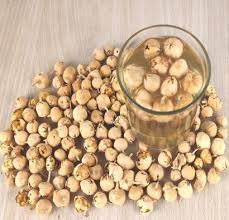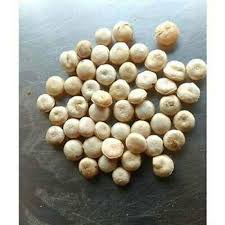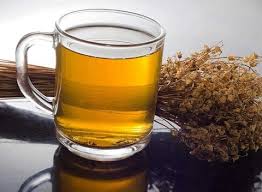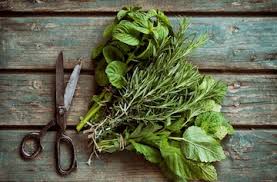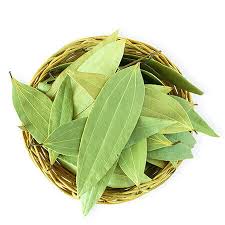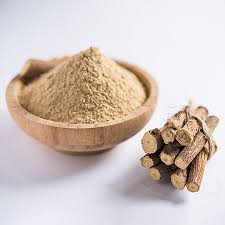
Is Selling Jadi Buti Online Profitable?
With the increasing demand for natural and herbal remedies, the online market for Jadi Buti (medicinal herbs) has expanded significantly. Selling Jadi Buti online can be a highly profitable business, provided you have the right sourcing, marketing, and sales strategies.
In recent years, global interest in Ayurvedic, organic, and herbal medicines has surged. People are actively searching for natural alternatives to synthetic drugs, and online marketplaces have made it easier than ever to reach a global customer base. This article explores the profitability, key factors, challenges, and strategies for success in the online Jadi Buti business.
Long Description (With SEO Points)
- Why Selling Jadi Buti Online is a Profitable Business
The herbal products industry is booming, with a compound annual growth rate (CAGR) of 6-7%. The global market for medicinal herbs and Jadi Buti is expected to surpass $550 billion by 2030. Here’s why selling Jadi Buti online is profitable:
Growing Demand for Natural Remedies – Consumers prefer herbal products over chemical-based medicines.
Expanding Global Market – Countries like India, USA, Germany, and UAE have high demand for medicinal herbs.
Low Operational Costs – Selling online reduces costs associated with physical stores.
Scalability – You can start small and expand as demand grows.
Niche Market Advantage – Selling unique herbs like Bapchi seeds, Ashwagandha, Shatavari, and Mulethi attracts a targeted audience.
- Key Factors That Affect Profitability in the Jadi Buti Business
Before starting an online Jadi Buti business, consider these key factors:
A. Choosing the Right Herbs to Sell
Some Jadi Buti have higher market demand and profit margins than others. Popular and profitable medicinal herbs include:
Ashwagandha (Withania somnifera) – Known for stress relief and immunity boosting.
Bapchi Seeds (Psoralea corylifolia) – Used in Ayurveda for skin treatments.
Shilajit – Popular as a natural energy booster.
Mulethi (Licorice Root) – Widely used for respiratory health.
Giloy (Tinospora cordifolia) – Known for its immunity-enhancing properties.
B. Sourcing High-Quality Herbs
Profitability depends on offering pure, organic, and chemical-free Jadi Buti. Key sourcing options:
Direct farm sourcing – Ensures authenticity and quality.
Wholesale suppliers – Bulk purchasing reduces costs.
Organic certification – Helps in building trust with customers.
C. Packaging & Storage
Proper packaging and storage are crucial for maintaining herbal potency and shelf life. Tips:
Use airtight, moisture-proof packaging.
Store in cool, dry places.
Follow FSSAI and FDA guidelines for herbal products.
D. Competitive Pricing Strategy
Set competitive prices by considering:
Sourcing costs – Bulk purchasing lowers costs.
Market demand – High-demand herbs allow for premium pricing.
Profit margins – Ensure at least a 30-50% margin for sustainability.
- Challenges in Selling Jadi Buti Online
While selling Jadi Buti online is profitable, there are some challenges:
A. Competition from Other Sellers
Many herbal brands are entering the market.
Focus on quality, branding, and customer trust to stand out.
B. Regulatory Compliance & Certifications
Selling medicinal herbs requires FSSAI, GMP, and organic certifications.
Different countries have different import/export regulations.
C. Customer Trust Issues
Many customers fear fake or adulterated products.
Offering lab-tested and certified herbs builds credibility.
- Best Platforms to Sell Jadi Buti Online
To maximize profits, choose the right selling platforms:
A. Own E-commerce Website (Best Option)
Build a website like Dirghaanshi for direct sales.
Use SEO, content marketing, and paid ads to attract buyers.
B. Online Marketplaces
Sell on:
Amazon, Flipkart, and eBay – Huge customer base.
Etsy – Best for organic, Ayurvedic products.
Indiamart, Alibaba – Ideal for wholesale Jadi Buti business.
C. Social Media & WhatsApp Business
Promote products on Facebook, Instagram, and YouTube.
Use WhatsApp Business for direct orders.
- Marketing Strategies for Success
To make your Jadi Buti business profitable, use effective digital marketing strategies:
A. Search Engine Optimization (SEO)
Target keywords like “buy Jadi Buti online,” “organic Ayurvedic herbs,” “best medicinal herbs,” and “Bapchi seeds supplier”.
Optimize product descriptions with high-ranking keywords.
B. Content Marketing & Blogging
Write blogs like “Benefits of Ashwagandha” or “How to Use Jadi Buti for Better Health”.
Educate customers about herbal benefits.
C. Influencer & Affiliate Marketing
Collaborate with Ayurveda experts and herbal influencers.
Offer affiliate commissions for promoting products.
D. Paid Advertising (Google & Facebook Ads)
Use targeted ads for selling to specific audiences.
Retarget website visitors for higher conversions.
Conclusion
Selling Jadi Buti online is a highly profitable business when done correctly. With the rising demand for herbal products, low operating costs, and access to a global market, it is an excellent opportunity for entrepreneurs. By focusing on quality sourcing, competitive pricing, effective marketing, and regulatory compliance, businesses can build a successful online herbal brand.
At Dirghaanshi, we are committed to providing pure, authentic Jadi Buti to customers worldwide. Whether you’re looking to buy, sell, or export herbal products, now is the perfect time to enter the herbal market and maximize profits.


